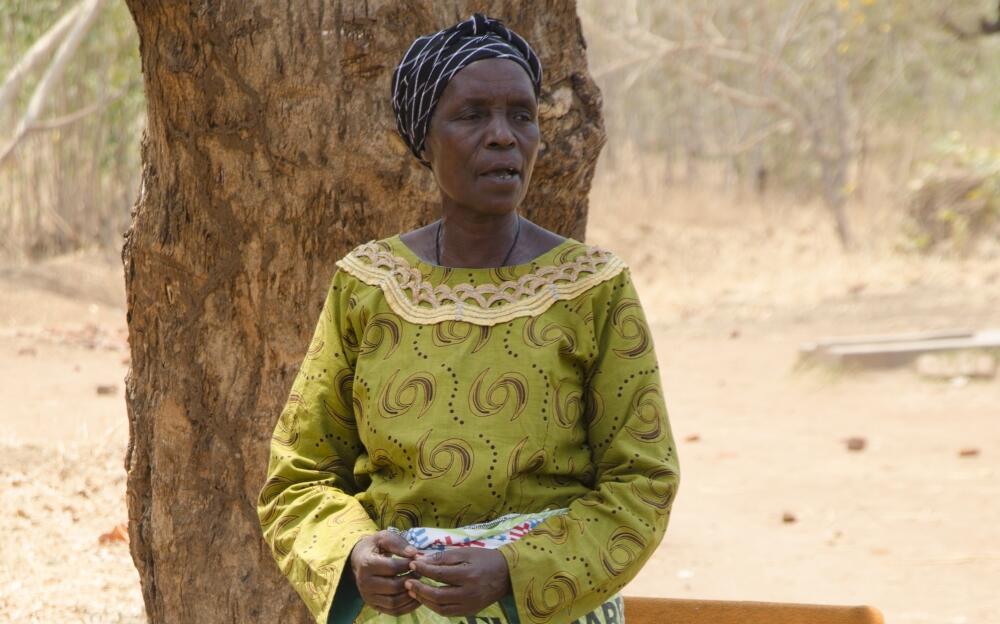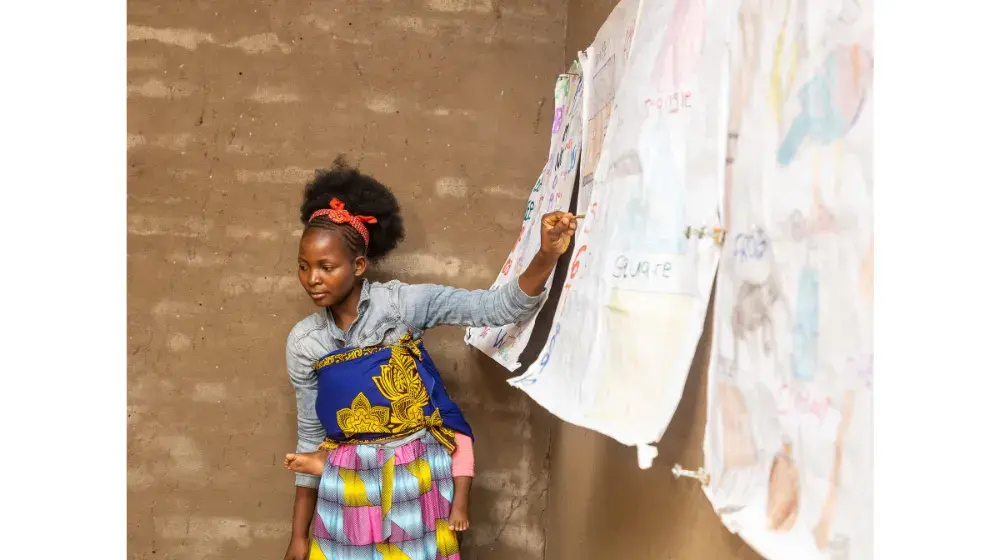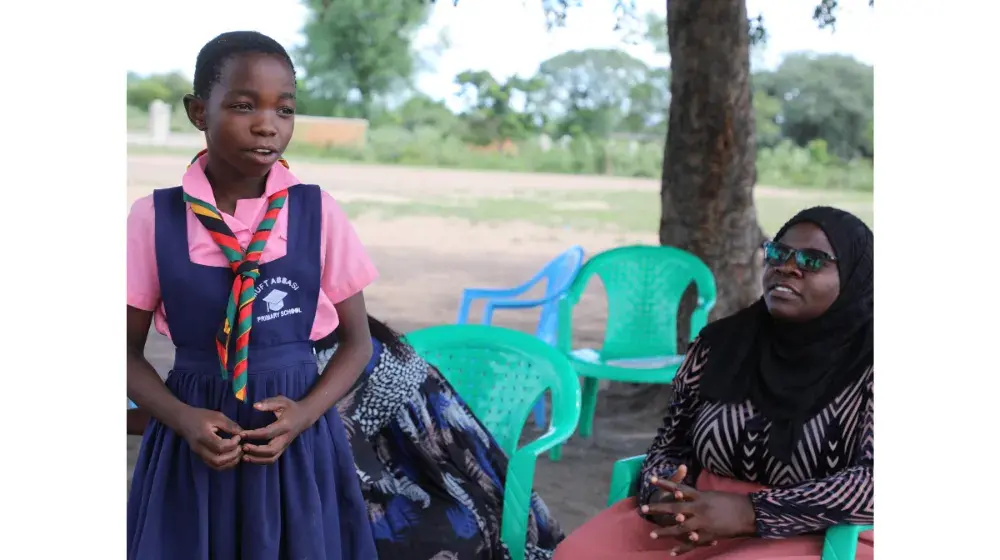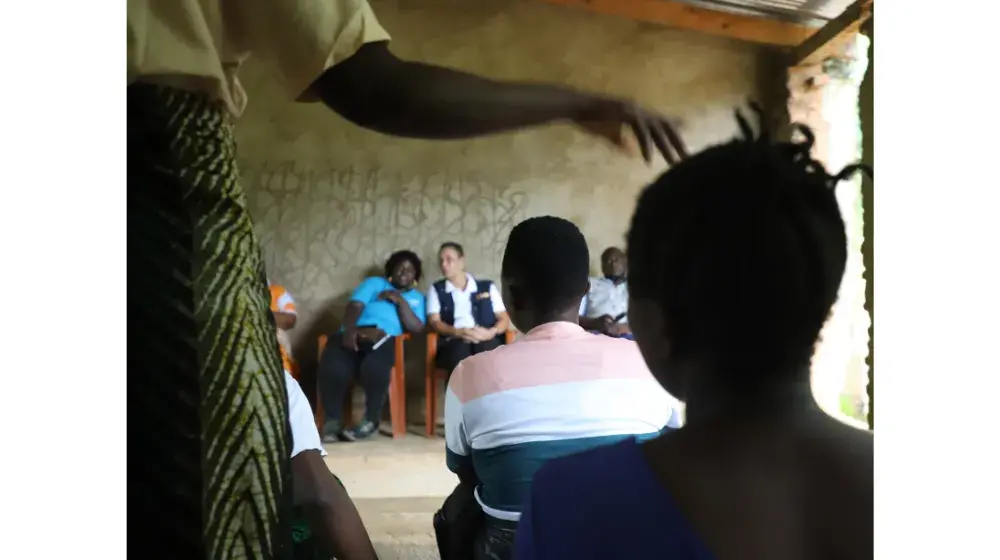MWANZA, Salima, Malawi—Married at the tender age of 14, Traditional Authority Mwanza, one of Malawi’s female chiefs, knows only too well the opportunities that are lost when girls are married off early.
Born Chalendo MacDonald in 1952, it was her dream to create a better life for herself, based on her personal experiences, that now drives her campaign to protect girls’ futures and create better lives for them.
If she’d had a choice, she would have completed her education. But when the grandmother who was raising her passed away, options were limited and she was married off to Matthias William, Group Village Headman. And when her sister, who was the local headwoman, died, she inherited her position.
Traditional Authority Mwanza is one of the female chiefs who continues to promote girls’ education and eliminate harmful cultural practices, including child marriage.
As a chief, she has the authority to promote matters of common interest in her community of 760 villages and 170 group village headmen. For instance, the Gender Equality and Women Empowerment (GEWE) project, funded by the European Union and UNFPA, promoted equal opportunities for women and girls through various empowerment initiatives, including promoting girls’ education. Although the project ended in 2016, she continues the work initiated in her community.

with one of the girls who was taken back to school in T/A Mwanza's
community. © UNFPA Malawi/Henry Chimbali
Campaign to end child marriage gains traction
In Malawi, an estimated 47 per cent of women aged 15 to 49 years are married off before their 18th birthday (DHS 2015-16). Yet the campaign to end child marriage is gaining momentum, with female chiefs mostly at the forefront.
Whereas previously, only a few chiefs and organizations supported this call, today a greater number of local leaders and organizations have added their voices. One of the most prominent among them is Senior Chief Kachindamoto, chief of Dedza District in the central region of Malawi, who has annulled many child marriages in her community.
Traditional Authority Mwanza has the authority to put a stop to certain harmful practices. After consulting with others in her community, she took steps to end two practices in particular.
I have eliminated some cultural practices that were deemed harmful to women and girls, and I have made sure I will never see [these] practices happening here again.
“In my community, I have eliminated some cultural practices that were deemed harmful to women and girls, and I have made sure I will never see [these] practices happening here again,” she says.
She banished two types of gulewamkulu (masked men who perform ritual dances at traditional ceremonies) – Namkwanya and Kamano – who were sexually harassing women and girls during initiation ceremonies (young girls receive counselling in the transition to adulthood). “A Namkwanya could come to pick a girl to have sex [with], and he would do that with all the initiates (young girls who are counselled during the initiation ceremony), while wearing his mask to hide his identity,” she said.
Promoting gender equality
As chief, Traditional Authority Mwanza enjoys her work of promoting girls’ rights, as she wants girls in her community to be educated. With support from development committees and village heads, she ensured that 1300 children returned to school between 2012 to 2016.
We have made sure that in our community, both boys and girls have the same opportunity to stay in school.
Mussa Jackson, chair of the Area Development Committee (ADC), explained: “We have made sure that in our community, both boys and girls have the same opportunity to stay in school.”
The community, led by their chief, have also referred cases of gender-based violence to the police for processing through the justice system. “We have cases where [men] are serving jail time of more than seven years because of rape, while others [have been] fined (for more minor cases),” said Traditional Authority Mwanza. “It is mostly women who come to complain [of this].”
From 2013 to date, they have resolved 507 cases brought to them by women and 37 by men, for various infractions, including for men failing to support their families, or for not paying the school fees for their children. Of these, 44 cases were referred to police and nine people are serving time in prison because of rape. Their success in resolving them has meant that the community now has fewer cases of gender-based violence.
Sharing stories of success

Kemigisa of Uganda’s Toro Kingdom. © UNFPA Malawi/
Henry Chimbali
Because of her work to empower girls and women, and to deal with those who perpetrate acts of sexual or gender-based violence against them, she was asked to share her experiences with Ethiopian traditional leaders in Addis Ababa, Ethiopia.
“When I shared the work I do in Addis Ababa, a lot of people were interested to come [to Mwanza to] see what I am doing,” she said.
Queen Best Kemigisa, Queen Mother of Uganda’s Toro Kingdom, visited her community in 2016 to learn more about her activities and to share ideas on how to encourage cultural practices that promote the rights of women and girls.
And earlier this year, she met Graça Machel, former Mozambican and South African First Lady, together with some of the girls who were rescued from child marriages. She looks forward to welcoming more visitors.
Collaborating with UNFPA to promote girls’ rights
Although the GEWE project ended in 2016, UNFPA Malawi and she have remained partners, to ensure ongoing support, including creating a platform both locally and internationally for her to showcase her success to date, and also to foster sustainability for her work.
Models and initiatives implemented in this community are sustainable and we have made it possible that they should be scaled [up] beyond the confines of Traditional Authority Mwanza
“We have seen that models and initiatives implemented in this community are sustainable and we have made it possible that they should be scaled [up] beyond the confines of Traditional Authority Mwanza,” says Beatrice Kumwenda, UNFPA Gender Programme Specialist.
Through this collaboration, the community of Mwanza has been able to mobilize other resources from non-governmental organizations, which have enabled them to review the local bylaws to ensure they correspond with the chief’s intentions. “Previously, fines [could be imposed by the chiefs] for breaking these bylaws (relating to sexual and gender-based violence) but we have now revised them,” said ADC Chair Mussa Jackson. “The [money received by way of the] fines is now shared among the people offended (those affected by the assault), including the survivor.”
Seeking support to end harmful practices
While there has been much progress in her community, Traditional Authority Mwanza laments the fact that at times it seems she is the only person who is championing the ending of these ills.
“I find it hard sometimes, because colleagues surrounding me are not [at the] forefront to fight these practices, and [this] makes it easier for perpetrators to run [away] or relocate to a nearby village that is outside my jurisdiction, where they will not be taken to task,” she said. “It would be proper if we collaborated well with [chiefs] from surrounding [areas].”
Despite these challenges, she remains committed to her task. And she knows that for each girl she saves from child marriage or helps return to school, and for each woman who sees justice after surviving gender-based violence, her actions have made a difference.
- Henry Chimbali





